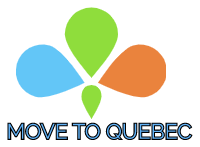Study In Quebec
The educational system in Quebec, Canada is unique and distinctive compared to other provinces in the country. Known for its emphasis on French language and culture, Quebec’s educational system is primarily conducted in French, although English-speaking schools also exist in the province.
The Ministry of Education and Higher Education (Ministère de l’Éducation et de l’Enseignement supérieur) oversees the educational system in Quebec, ensuring standards and guidelines are followed across all levels of education. The system is divided into four main levels: preschool education, primary education, secondary education, and post-secondary education.
Preschool education in Quebec is available to children between the ages of 0 to 5 years. It is not mandatory but highly encouraged. Preschools and early childhood centers, known as “CPE” (Centre de la petite enfance), provide a nurturing environment for children’s development and early learning.
Primary education in Quebec begins at the age of 6 and lasts for six years, from Grade 1 to Grade 6. The primary education curriculum focuses on developing foundational knowledge and skills in subjects such as mathematics, French language and literature, science, social studies, and physical education. Cultural and artistic activities are also incorporated into the curriculum.
Secondary education in Quebec comprises two cycles: the first cycle (Grade 7 to Grade 9) and the second cycle (Grade 10 to Grade 11 or 12, depending on the school). The secondary education curriculum aims to provide students with a comprehensive education while allowing them to explore their interests and potential career paths. Core subjects include mathematics, science, history, geography, French language and literature, physical education, and ethics and religious culture. In the second cycle, students can choose from different academic profiles, such as general education, technical and vocational training, or a combination of both.
After completing secondary education, students have several options for post-secondary education in Quebec. These include college-level programs (known as CEGEPs) and university education. CEGEPs (Collèges d’enseignement général et professionnel) offer a unique system that bridges the gap between secondary school and university. CEGEP programs typically last two or three years and provide students with general education courses as well as specialized training in various fields. Following CEGEP, students can choose to enter the workforce or continue their studies at a university.
Quebec is home to several reputable universities, including McGill University, Université de Montréal, and Université Laval. These universities offer a wide range of undergraduate and graduate programs in various disciplines, attracting students from around the world.
One notable aspect of the educational system in Quebec is the importance placed on the French language. French is the primary language of instruction in most schools, reflecting the province’s commitment to preserving its French-speaking identity and culture. However, there are also English-speaking schools available for those who prefer an English-language education.
In recent years, efforts have been made to improve the accessibility and inclusivity of the educational system in Quebec. Special attention has been given to supporting students with diverse needs and promoting educational equity. Various initiatives and resources are in place to ensure students receive appropriate support and accommodations throughout their educational journey.
Overall, the educational system in Quebec combines a focus on academic achievement, cultural preservation, and personal development. It strives to equip students with the knowledge, skills, and values necessary for success in their chosen paths, while promoting the French language and Quebecois culture.
To study in Quebec, you first need to have a letter of acceptance from the designated learning institution which you plan to attend in Quebec. In addition, you must have received a Québec Acceptance Certificate (CAQ) or certificate of acceptance which is issued by the province of Quebec.
Studying in Quebec: The Advantages
- Diplomas and degree obtained in Quebec are recognized internationally. Quebec ensures the quality of the programs offered in each of the public institutions of its educational system, through, among other things, legislation, the use of external assessment bodies, and by securing the agreement of professional orders.
- Students have a vast range of French and English programs of study to choose from, depending on the institution selected.
- Quebec’s institutions of higher learning, irrespective of their size and location, are equipped with ultramodern facilities such as high-tech labs, computer labs, sports facilities, and auditoriums.
- Tuition fees applicable to foreign students compare favourably to those in other industrialized countries, as well as to other Canadian provinces.
- The cost of livingis among the lowest in Canada.
- Quebec has the best of urban living and rural beauty. In addition to its myriad lakes and rivers, a huge boreal forest, a fjord and a majestic seaway, Quebec has a multitude of national parks.
- International students have a clear pathway to permanent immigration to Canada and, eventually, citizenship
Schools in Quebec
These institutions are featured due to their size, proximity to urban centres, and tradition for enrolling international students into their student bodies. Learn more about each school by clicking their titles below, which will take you to the relevant page on School Search.
Other Select Schools in Quebec
Select Schools are those that CanadaVisa has assessed for quality, value, and competency with international students. These schools are accredited by Colleges and Institutes Canada (formerly the Association of Community Colleges of Canada) or are chosen because of proven pathway programs and exemplary student services.

